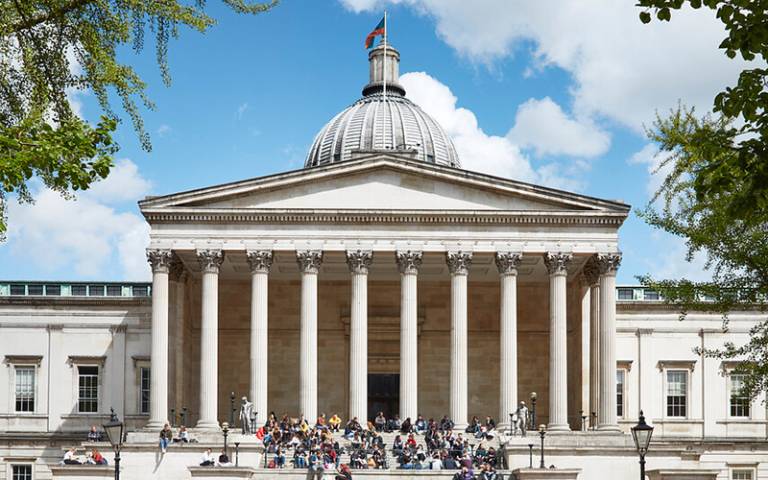Next generation of UCL bioscientists earn government funding
24 October 2019
Bioscience PhD students at UCL are benefiting from a share of a £170 million investment announced today by the UKRI Biotechnology and Biological Sciences Research Council (BBSRC).

The UCL-led London Interdisciplinary Doctoral Training Partnership (LIDo), bringing together eight partner universities, has been commissioned for a further five years from 2020 as part of the BBSRC’s 2019 DTP3 competition.
The award will fund 190 PhD studentships over five years across the eight LIDo partner universities, of which a minimum of 55 are earmarked as industrial collaboration "CASE" studentships. The funding represents an investment of over £20M in LIDo’s development of future bioscience researchers.
The Director of UCL’s London Interdisciplinary Doctoral Training Programme (LIDo DTP), Professor Jonathan Ashmore (UCL Neuroscience, Physiology & Pharmacology) commented: “The award is really excellent news for UCL’s bioscientists of the future. We look forward to working alongside our colleagues from the eight institutions in this London-wide partnership and with industry leaders and to continue our highly collaborative, interdisciplinary and successful training programme.”
The LIDo partners are UCL, King's College London, Queen Mary University of London, Royal Veterinary College, Birkbeck, University of London and the London School of Hygiene and Tropical Medicine plus two new members: Royal Holloway, University of London and University of Greenwich's Natural Resources Institute. Close working with industry is fostered by associate partners Unilever, Royal Botanic Garden at Kew, the Food Standards Agency and the Animal and Plant Health Agency.
Supporting the next generation of UK bioscientists, the BBSRC investment will fund a total of 1,700 PhD researchers over five annual cohorts at academic institutions all over the country under the third phase of BBSRC’s Doctoral Training Partnerships.
The announcement, backed by Prime Minister Boris Johnson, also highlighted investments in artificial intelligence, including two Centres for Doctoral Training (CDTs) at UCL that were first announced earlier this year.* One CDT specialising in ‘Foundational Artificial Intelligence’ will be led by Professor David Barber (UCL Computer Science) in collaboration with the Gatsby Computational Neuroscience Unit and the UCL Institute for Cognitive Neuroscience. Another CDT focusing on ‘AI-enabled Healthcare Systems’ will be led by Professor Geraint Rees (Dean, UCL Life Sciences), and involve three partner NIHR Biomedical Research Centres at UCLH, Moorfields Eye Hospital and Great Ormond Street Hospital.
Announcing the DTP award, Professor Melanie Welham, BBSRC’s Executive Chair, said: “By continuing to fund, through this significant £170 million investment, vital training of the next generation of researchers we will help ensure that the UK consolidates its position as world-leader in this crucial sector.”
LIDo has a particular emphasis on combining biology with computational, materials and physical sciences and provides intensive training in coding for biologists and biology for students with a physical/computational sciences background. The partner universities offer four-year PhD studentships over five cohorts starting in October 2020, during which each student also undertakes a three-month professional internship placement to develop their skills further and to explore possible future career directions.
Each of the successful DTPs have also received additional funding to provide additional opportunities for students which will in part be used to encourage under-represented groups of undergraduates to experience research through summer placements, as well as to support high-cost research projects.
Links
- London Interdisciplinary Doctoral Training Partnership (LIDo)
- Government announcement
- UKRI-BBSRC news story
- UCL Biosciences
- UCL Engineering
- UCL Life Sciences
- * UCL receives £12.6m to create a new generation of AI leaders
Media contact
Chris Lane
Tel: +44 (0)20 7679 9222
Email: chris.lane [at] ucl.ac.uk
 Close
Close

